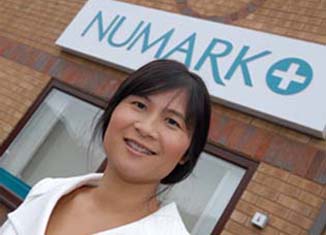Care home commitments
In Services development
Follow this topic
Bookmark
Record learning outcomes
 Working with care homes requires investment, space and time. But for those that can commit the necessary resource, it can be a lucrative and rewarding aspect of the business, as Mimi Lau, Numark’s director of pharmacy services, explains
Working with care homes requires investment, space and time. But for those that can commit the necessary resource, it can be a lucrative and rewarding aspect of the business, as Mimi Lau, Numark’s director of pharmacy services, explains
The care home market is currently serviced mainly by the national multiple pharmacy chains, often delivered via a hub-and-spoke model. Frequently, these are contracted centrally by the major multiples where the care home is part of a national chain, which therefore minimises the opportunity for local independent pharmacies. Some independents may choose not to undertake this work because of workload or small margins, but if you are considering taking on a care home, make sure that you have done your homework and go into it with your eyes open.
The focus on raising standards in care homes and the quality of care will continue to be under scrutiny following examples like Orchid View. The Care Quality Commission (CQC) in England has recently introduced a new model for inspecting care homes and, given the latest National Institute for Health and Care Excellence (NICE) guidelines, medicines management will be of increasing importance.
Implementating these guidelines, which include the care home having a regularly reviewed medicines policy with accurate and up-to-date records and medication reviews for each resident, is more than challenging. As a consequence, many care homes will need greater input from pharmacists to provide the level of medicines support that NICE recommends. This is a great opportunity for you to reach out to care homes and build a compelling case to improve medicines management.
Don’t be fooled into thinking greater volumes mean more profit
Opportunities for training
Training for care home staff is another area where community pharmacists can get involved, with private funding available directly from the care home or as a locally commissioned enhanced service. Numark offers its members a package that enables them to deliver comprehensive medicines management training to care homes. It is accredited by the RPS and includes an assessment process for care home staff to demonstrate competence.
Local provision can make good business sense for care homes because it can mean improved care and quality of life for residents, reduced hospital admissions, enhanced reputation for the home and peace of mind for its staff. The relationship that you and your staff can have with the care home at a local level will give you a competitive advantage over some of the multiples who manage the home at arm’s length. Play to this strength!
It is vital to consider all the implications of chasing increased volumes: premises, staff, impact on the rest of the business. Don’t be fooled into thinking greater volumes mean more profit, and you should also think about funding.
If you feel it is appropriate to you, you need to understand the market, get the right financial model and develop a service proposition that meets a home’s objectives. By building a trusting and informative relationship with the care home, including regular meetings and audits, you will minimise the risk of the home being enticed away to other pharmacy competitors.
Numark has a care home toolkit available that includes audit tools, templates for service level agreements, advice on structuring visits and tips on relationship management. We have also developed a Care Home Calculator that can be used to model whether care home business is for you. It takes into account your capital expenditure and labour and equipment costs to determine whether the service would be profitable.
Numark tips for your care home business
• Before considering taking on this type of work, be very clear on your objectives. Although script volume will go up, other areas of your business may suffer because of the workload involved.
• It takes up a lot of space, not just to assemble, but also to store the medicines until dispatch, so you may have to consider extending your premises.
• Think about the set-up costs, especially if you need to invest in monitored dosage systems. Use the Numark calculator to model profitability.
• Be realistic about the workload. Think about how your team will cope, and you may need to consider how you redeploy existing staff or recruit additional personnel.
• An efficient process is essential, so think about how your workflow will need to adapt.
• A service level agreement is imperative, plus formal agreements for equipment loans.
• Play to your strengths, develop personal relationships with the home, and offer a tailored service rather than the standard approach offered by some others. This will develop loyalty to your pharmacy.
• Designate a member of your team as the care home champion so there is a main point of contact for homes.
• Maximise the funding opportunities – consider how you can offer services such as MURs and flu vaccinations to care home residents. Tap into funding for the training of care home staff.
• Understand the staff within the care homes; is there a high staff churn? What level of training have the staff received? Look at opportunities to support any learning and development needs
• Above all, ensure you communicate regularly with the care home management and have regular structured visits so you can pick up any problems before they develop and the business becomes vulnerable to a competitor.
Â
